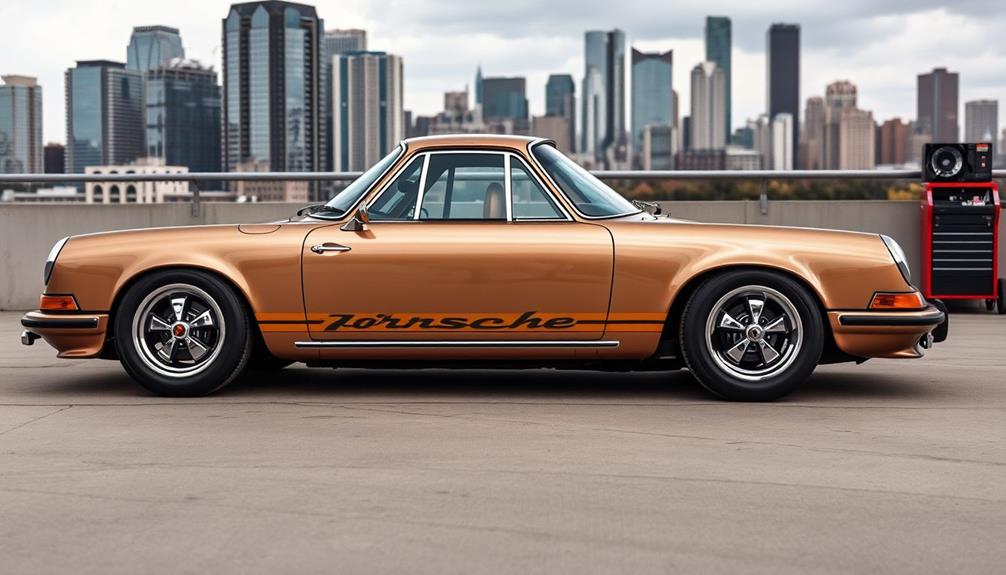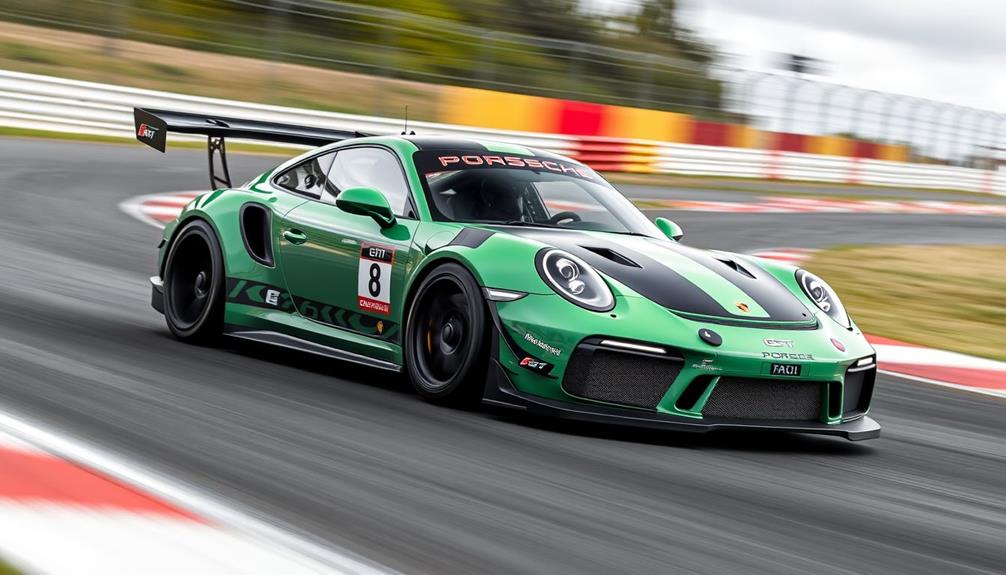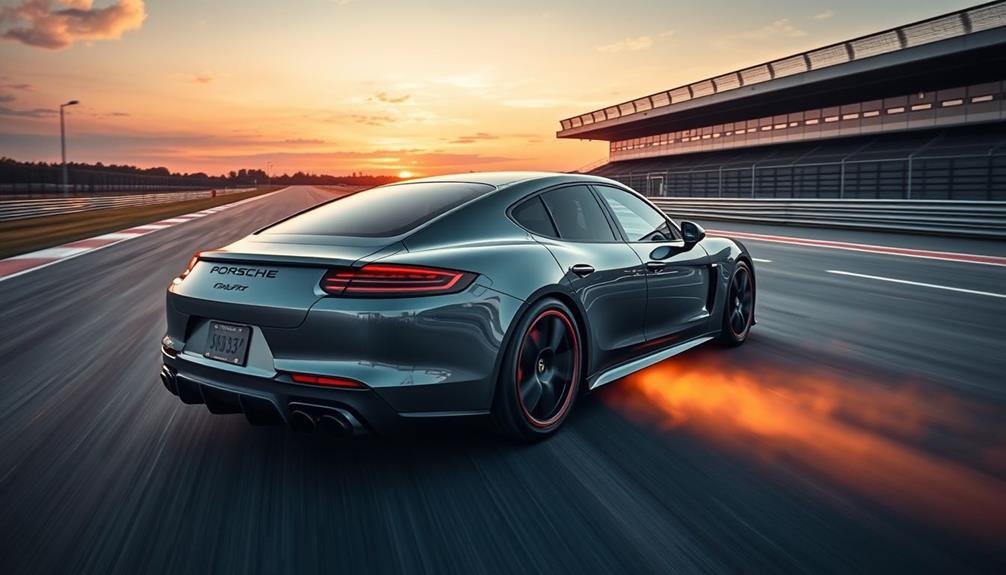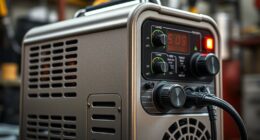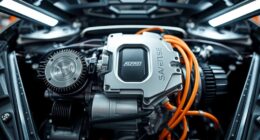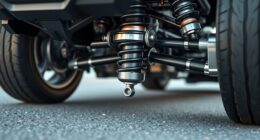Tuning your 1970 Porsche 911 can elevate its performance and make your classic ride even more thrilling. By swapping to S pistons and E cams, you can greatly boost power, maxing it out close to 175 hp. Upgrading to larger Weber carburetors enhances airflow and responsiveness. Incorporating modern features like EFI and high-performance fuel injectors can optimize efficiency while retaining the classic charm. Regular maintenance guarantees your enhancements remain reliable and effective. If you're looking to discover more tips and techniques to transform your classic into a modern powerhouse, there's plenty more to explore ahead.
Key Takeaways
- Upgrading to E or S specifications with higher compression pistons and performance cams significantly boosts the 1970 Porsche 911's power output.
- Modernizing with EFI and advanced ignition systems enhances efficiency and responsiveness while maintaining classic charm.
- Installing larger venturis in Weber carburetors optimizes airflow and improves engine performance compared to stock Zenith carburetors.
- Regular maintenance and tuning sessions are crucial for ensuring reliability and extending the lifespan of your upgraded classic 911.
- Balancing modern upgrades with original components can preserve the vehicle's resale value and authenticity in the market.
Engine Specifications Overview
When you plunge into the engine specifications of the 1970 Porsche 911T, you'll find a unique blend of performance and design. This classic sports car is powered by a 2.2-liter flat-six engine that delivers about 125 hp, complemented by a compression ratio of 9.0:1.
Unlike the more powerful E and S variants, the 911T features non-counterweighted cranks and cast iron cylinders, along with mild cam profiles that set it apart.
For those looking to enhance the engine specifications further, compatibility with 2.2S pistons and barrels opens up avenues for performance upgrades. If you're considering modifications, using Zenith carburetors with larger 30mm venturis is a smart choice, as they can optimize performance by increasing the compression ratio.
You might also think about higher compression pistons or even stroking the engine to 2.4L while keeping T cams for a balanced street experience.
Performance Upgrade Options
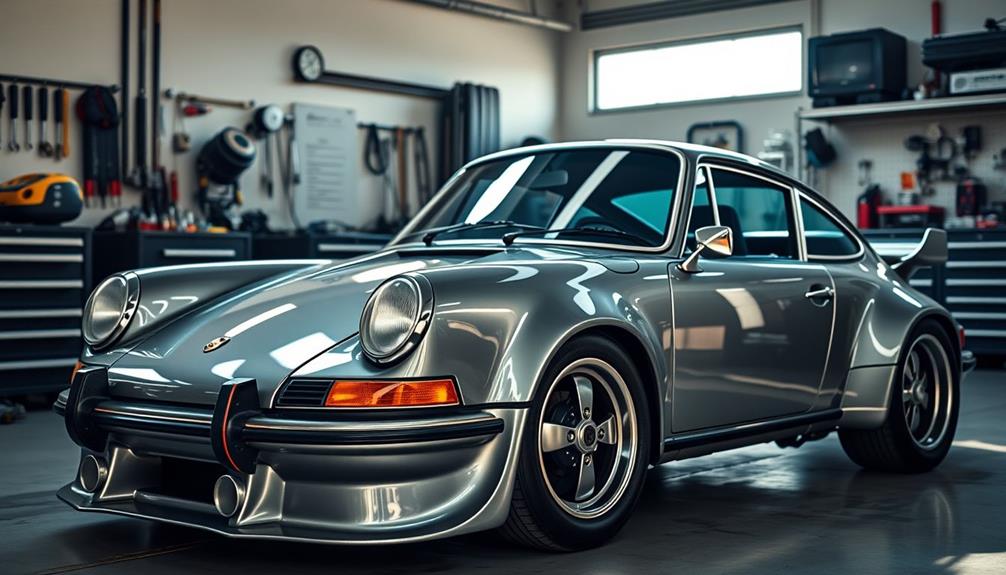
When it comes to upgrading your Porsche 911's performance, you'll want to take into account various engine component upgrades that can boost both power and torque.
Additionally, comparing carburetor options can help you optimize fuel delivery for those enhancements.
Engine Component Upgrades
Engine component upgrades for the Porsche 911 can considerably enhance your vehicle's performance and driving experience.
One effective way to boost power is by upgrading your 1970 911T engine to E or S specifications. Swapping in S pistons with E cams can deliver a significant power increase. You might also consider high compression pistons from JE, especially if you're using premium fuel, which helps your engine perform at its peak.
Stroking the engine to 2.4L can yield improved torque and power, making your drives even more exhilarating while still working with existing components.
If you'd prefer to retain the original T cams, increasing compression and adjusting jetting can provide a balanced performance upgrade that's perfect for street use.
Don't overlook the benefits of larger venturis—using 30mm in your Zenith carburetors can optimize airflow after your engine upgrades.
These engine component upgrades are essential for achieving the best results and transforming your classic Porsche 911 into a modern performer.
With the right upgrades, you'll enjoy an even more thrilling driving experience behind the wheel of your classic ride.
Carburetor Options Comparison
Upgrading the carburetors in your 1970 Porsche 911T can make a noticeable difference in performance, especially if you're looking to maximize your engine's potential.
You have a couple of solid options to evaluate, each with its pros and cons:
- Zenith Carburetors: These are the stock choice and can perform well on a stock engine. With proper tuning and larger venturis (27mm or 28.5mm), you can achieve decent results, but options for modification are limited.
- Jetting Modifications: If you stick with Zeniths, adjusting the jetting can help when increasing the compression ratio, ensuring an ideal air-fuel mixture for better performance.
- Weber Carburetors: Upgrading to Webers provides greater tuning flexibility. They excel on modified engines, especially with S pistons and E cams, greatly boosting horsepower.
- Larger Venturis: Installing 30mm venturis in your Zenith carburetors can greatly improve airflow and power output, making them a worthwhile option for upgraded engines.
Each option offers unique benefits, so weigh your priorities between originality and performance to find the best fit for your driving style.
Performance Tuning Techniques
Performance tuning techniques for your 1970 Porsche 911T can greatly elevate your driving experience, transforming it into a more exhilarating affair.
Consider upgrading to E or S specifications by swapping out pistons and cams. Combining S pistons with E cams can considerably enhance performance. You might also increase the compression ratio using high-performance pistons, like JE, especially when running on premium fuel, leading to substantial power gains.
Another effective method is engine stroking to a robust 2.4L, which boosts both torque and horsepower output. This modification guarantees a more thrilling ride.
Don't overlook carburetor adjustments; upgrading to larger venturis (30mm recommended) optimizes airflow and fuel delivery, which is critical for overall performance.
If you want a balance between performance enhancements and everyday drivability, retain the T cams while increasing compression and making necessary carburetor jetting adjustments.
These performance tuning techniques won't only make your classic 911T faster but also more enjoyable to drive on the streets. With these upgrades, you'll experience a perfect blend of nostalgia and modern performance in your iconic Porsche.
Sourcing Parts and Components
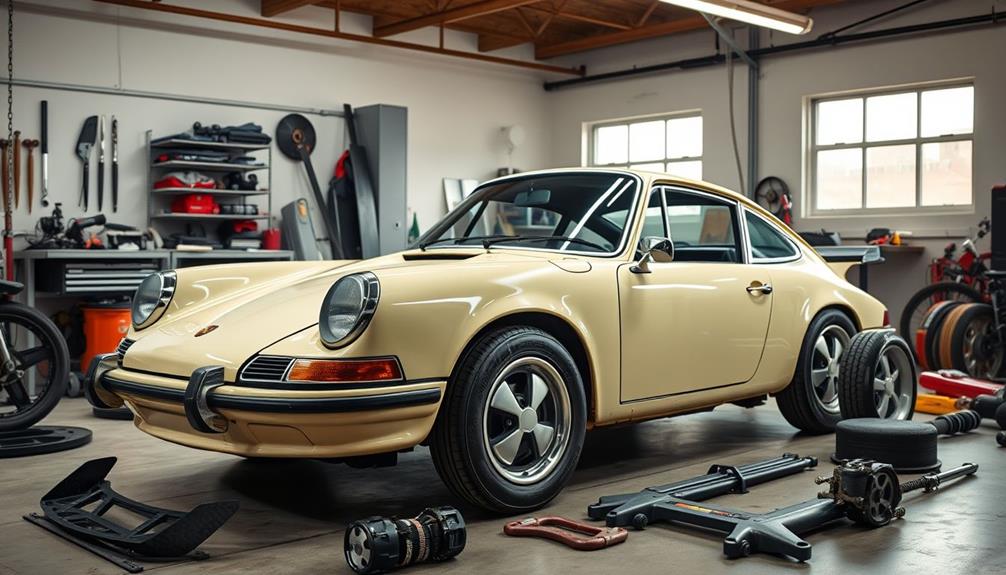
When it comes to sourcing parts and components for your 1970 Porsche 911T, you'll want to prioritize reputable suppliers and online forums that specialize in classic Porsche upgrades.
Contemplate exploring options that enhance performance while guaranteeing compatibility with your vehicle. Here are some key components to reflect on:
- S Pistons: Upgrading to S pistons can greatly boost your engine performance.
- E Cams: Pairing E cams with your new pistons maximizes power gains.
- NOS Parts: New Old Stock parts offer authenticity but may come at a premium price.
- Consult Specialists: Reach out to experts like Supertec for piston and cylinder options to confirm you're making the right choice.
Reusing your existing cylinders while upgrading to high compression pistons can save you money without sacrificing performance.
Just keep in mind the vehicle's future resale value; modifying a matching numbers car might affect its market appeal.
By focusing on quality parts and knowledgeable suppliers, you'll be well on your way to achieving that Porsche Exclusive performance upgrade you desire.
Happy tuning!
Carburetor Comparison
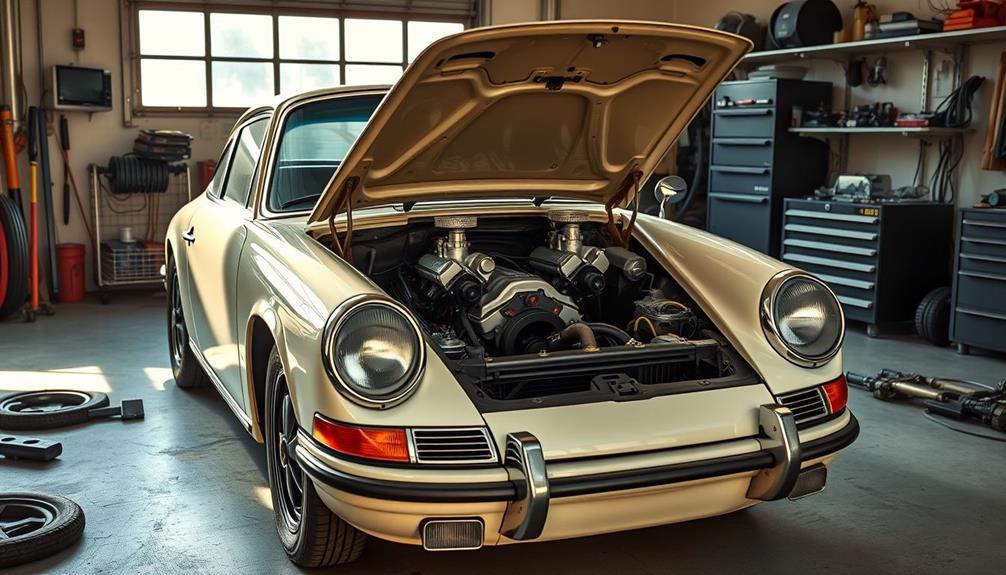
Choosing the right carburetor for your 1970 Porsche 911T can greatly influence your driving experience. When you look at a carburetor comparison between Zenith and Weber options, you'll notice distinct pros and cons.
Zenith carburetors, which are common on the 911T, perform well with stock engines, especially when equipped with larger 27mm or 28.5mm venturis. However, they offer limited modification options, which may restrict your ability to enhance performance considerably.
On the flip side, Webers provide much more tuning flexibility, making them a popular choice for enthusiasts seeking performance upgrades. With Webers, you can make precise adjustments to fuel delivery, allowing for a more tailored driving experience.
If you're considering upgrading your Zenith carburetors, increasing the venturis can lead to better performance, but you'll need to be mindful of the setup and tuning.
Ultimately, if maintaining originality is important to you, sticking with Zenith carburetors can be advantageous, especially for collectors. In your carburetor comparison, weigh the importance of performance against originality to make the best choice for your classic 911.
Maintenance and Upgrade Strategies
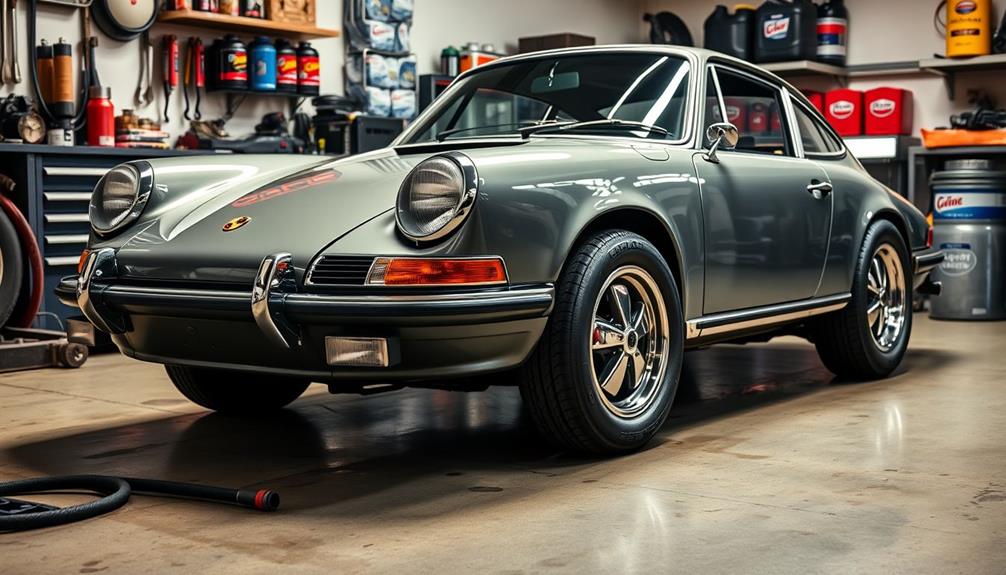
Successful maintenance and upgrade strategies for your 1970 Porsche 911T can greatly enhance your driving experience and extend the life of your vehicle.
To achieve modern performance reminiscent of a Turbo S while preserving that classic charm, consider these key strategies:
- Engine Upgrades: Swap out pistons and cams for E or S specifications. This considerably boosts performance while keeping street usability intact with T cams.
- High Compression Pistons: Retain existing cylinders but upgrade to high compression pistons, like JE, for a substantial performance increase, especially with premium fuel.
- Jetting Modifications: After upgrading, make necessary jetting adjustments for your Zenith carburetors. This guarantees the ideal fuel-air mixture and peak performance.
- "While-You're-In-There" Upgrades: Take advantage of engine work to implement additional enhancements without breaking the bank.
Consulting with specialists and utilizing online forums can help you source the right parts and guarantee compatibility.
Following these strategies not only maximizes performance but also maintains your vehicle's value, keeping your classic 911T running like a modern Turbo S.
Modernization Techniques

Upgrading your 1970 Porsche 911T can greatly enhance both its performance and drivability, making it feel more contemporary while still honoring its classic roots. One of the most effective modernization techniques is swapping the original CIS for a modern EFI system with individual throttle bodies. This shift boosts engine efficiency and overall responsiveness.
You might also consider high-performance components like modern fuel injectors and coil-on-plug ignition systems, which considerably improve power output. A slight cam change can optimize performance while keeping reliability intact for street use. Additionally, incorporating advanced sensors such as crank and cam position, air temperature, and wideband O2 sensors allows for precise tuning and improved engine management.
Here's a quick overview of some key modernization techniques:
| Modernization Technique | Benefit |
|---|---|
| EFI System with Individual Throttle | Enhanced engine efficiency |
| High-Performance Fuel Injectors | Improved responsiveness and power |
| Advanced Sensors | Precise tuning and engine management |
Tuning Process and Benefits
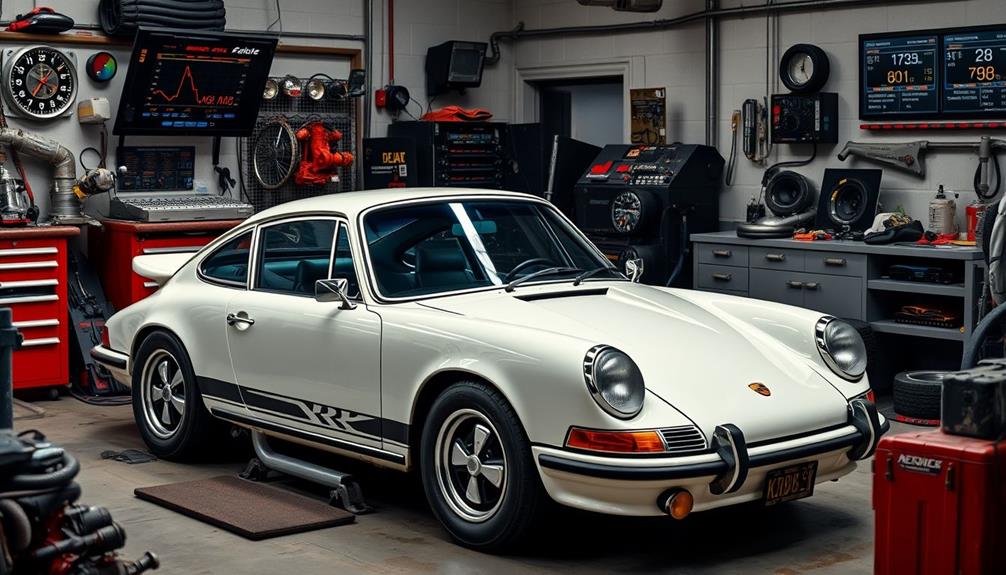
When tuning a 1970 Porsche 911, it's important to focus on adjusting key engine parameters like fuel delivery and spark timing to boost overall performance and efficiency.
The tuning process involves several essential steps that enhance your classic ride's capabilities.
- Initial Drivability Tuning: Start by optimizing the setup of electronics, sensors, and actuators. This phase may take longer but is vital for a solid foundation.
- Dyno Tuning: Use a dynamometer to measure your engine's performance. This allows for precise adjustments based on real-time feedback, including Lambda readings.
- EFI Modernization: Shifting to an EFI setup can dramatically improve drivability and responsiveness, far surpassing the original CIS system.
- Regular Maintenance: Schedule consistent tuning sessions to enhance reliability and longevity, ensuring your performance and efficiency are maintained over time.
Frequently Asked Questions
How Much Horsepower Does a 1970 Porsche 911 Have?
A 1970 Porsche 911T delivers 125 horsepower, while the 911E offers 155 horsepower, and the powerful 911S produces 170 horsepower. Upgrading components can greatly boost your classic's performance if you're looking for more power.
What Is the Top Speed of the Porsche 911 Classic?
The top speed of a classic Porsche 911 varies by model. Typically, the 1970 911T hits around 130 mph, while the more powerful 911S can reach approximately 140 mph with proper tuning and maintenance.
How Many Porsche 911 Sport Classic Were Made?
You'll find that only 1,250 units of the Porsche 911 Sport Classic were produced. This limited run emphasizes its exclusivity, combining classic design elements with modern performance, making it a coveted collector's item.
Does Porsche 911 Increase in Value?
You'd think a car depreciates once it leaves the lot, right? Well, not the Porsche 911. Its value often skyrockets, especially classic models, appreciating considerably each year if they're well-maintained and authentic.
Conclusion
In the end, breathing new life into your classic 1970 Porsche 911 isn’t just about speed; it’s about honoring a legacy while embracing modernity. By carefully selecting performance upgrades and employing thoughtful tuning strategies, you can transform your beloved ride into a harmonious blend of nostalgia and innovation. So, as you initiate this journey of refinement, remember, it’s not merely a tune-up; it’s an evolution, ensuring your 911 continues to thrill for generations to come. Consider the possibilities of Porsche 911 ECU tuning, harnessing the full potential of your vehicle’s engine performance. With careful adjustments to the electronic control unit, you can unlock additional power and responsiveness, all while maintaining the timeless appeal of your classic Porsche. Ultimately, this process is about preserving the heritage of the 911 while enhancing its capabilities for the future, ensuring that its legacy endures for years to come.
